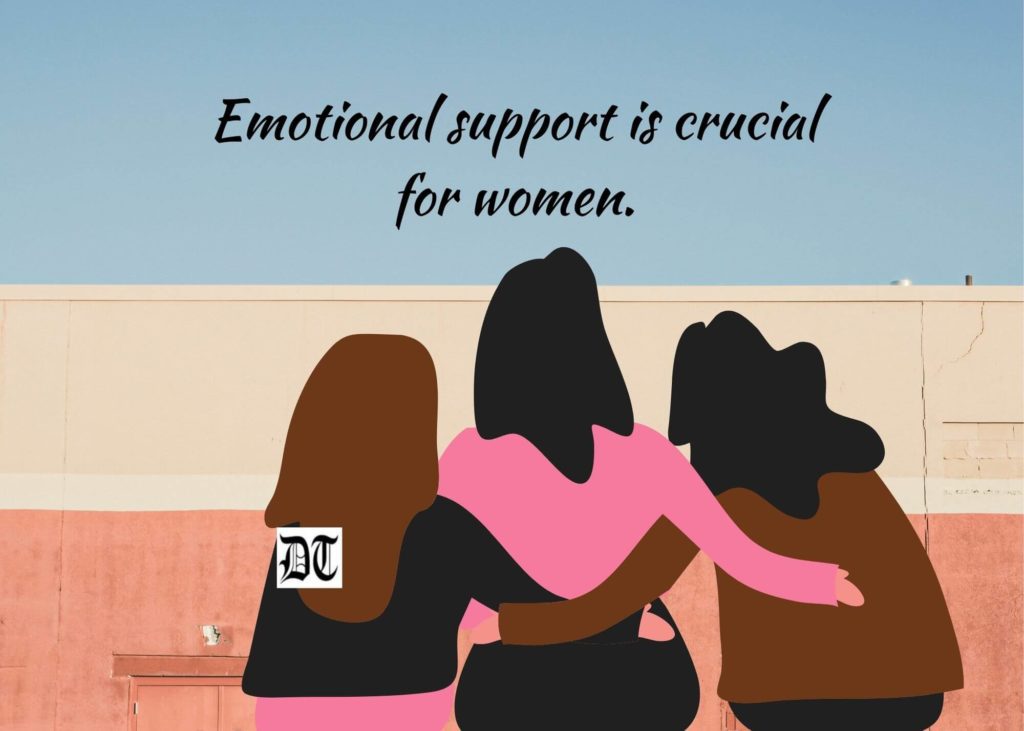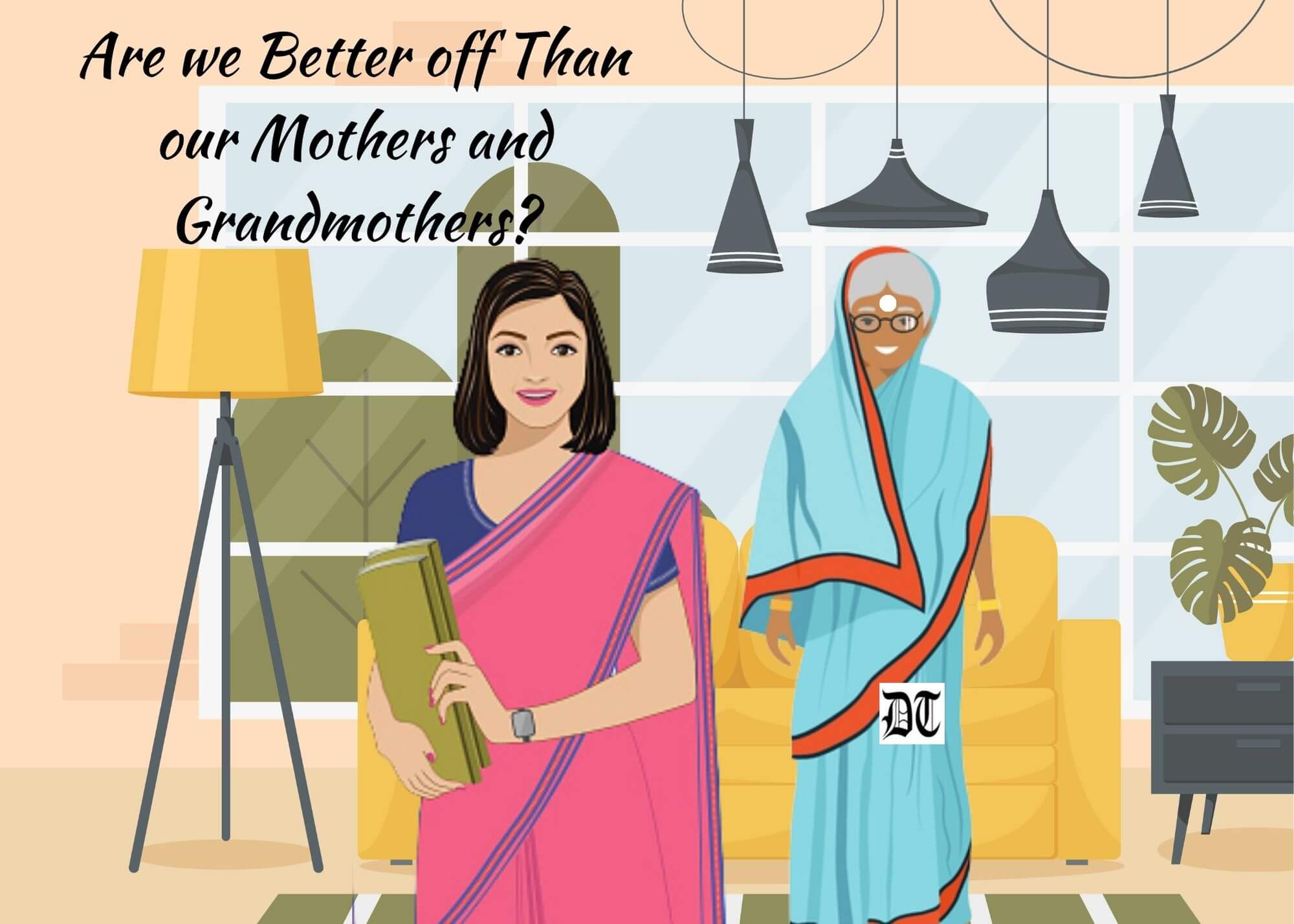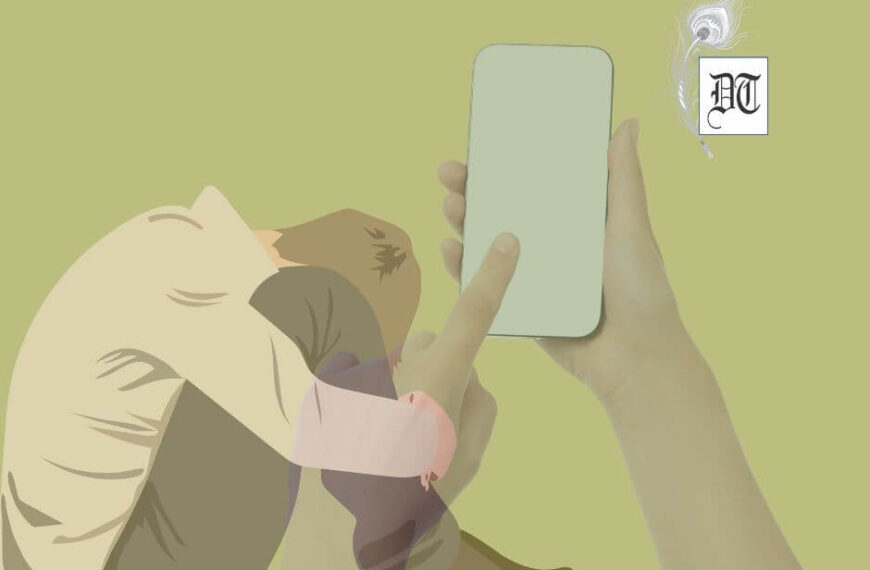Can financial independence of working women help her sail through the distress period, when their husbands die? They need support, care, love and togetherness too, which is missing, rues Hemashri. An exclusive for Different Truths.
These days I often ask myself – am I really an empowered woman? Really? How am I better off than my predecessors?
Just because we work, is it ‘sugar and spice, everything nice’? Even I was under the illusion that our generation of women with education and financial independence are far better off than their mothers and grandmothers.
When life exploded with sudden eventualities, my belief system collapsed.
Battling with Grief
After my husband’s death, when I battled with grief, trauma, emptiness, my best support was medications. Everyone seemed so confident I could manage everything on my own because I am an educated and a working woman. Thankfully, perhaps many like me are managing it well.
Two years into this new phase of life, now. Looking back, I feel proud yet sad.
Happiness research in Harvard, which followed alumni for eighty years, found that human happiness depends profoundly on relationships.
Happiness research in Harvard, which followed alumni for eighty years, found that human happiness depends profoundly on relationships. I have been wondering what I did all these years and why I could not build up great relationships. What is wrong with me?
Talking to fellow womenfolk made me realise I am not alone. Even they faced similar plights. Many friends and relatives, they said, vanished after a sudden disaster of losing their husbands. Like moths only getting attracted to light, it is innate human nature for people to be drawn only towards normal happy homes.

Modern-day Lives
What is unfortunate is that modern-day busy lives leave no time for anyone even in close circles to give time to anyone. Maybe they all assume an educated working woman can do everything on her own and manage everything by herself. These women take it as a challenge to prove they are strong, smart ladies. They keep trying to live that illusion. Many end-up with anxiety, panic, depression disorder or other health issues. Statistics say health issues are rampant among working women.
Maybe there used to be the big joint family systems which doubled up as their safety net.
Their counterparts, in the past, used to get generous support because those women were not earning members. Maybe there used to be the big joint family systems which doubled up as their safety net. Today, the nuclear family is the norm. The women, suddenly alone, must fend for themselves. They find that their many fair-weather friends have vanished.
So, a working woman may have the freedom to wear what she wants or eat what she longs to eat. But is she better off than her predecessors? It’s not a simple question that can be answered. To get the right answers perhaps first we shall have to frame the right questions:
Is she happier?
Is she feeling more secure?
Is she having better health than her ancestors?
Does she have better choices?
Happiness cannot be just a few more fancy clothes or accessibility to eat pizza or burger.
Ingrained Value System
Women do spare a thought. You are at a crossroad with a deeply ingrained Indian value system, ruthlessly modern work culture. And to make it worse, there may not be much support around.
Do you think at your age, your mom or grandma were better off than you?
I am thinking for the sake of enlightened self-interest. My appeal to you all, it is time you also think. Financial independence is very important, but our wellbeing includes good health, love, care, and happiness.
We must demystify what is the real face of empowerment.
We must demystify what is the real face of empowerment. Moreover, survival strategy demands that we keep working on ‘be everything for yourself.’
Visual by Different Truths





 By
By
 By
By
 By
By
 By
By
Very thought provoking topic.
Topic you discuss is very sensitive and important. At one stage of life our educational qualifications, designation will not work … I read a story of Tolstoy ‘the fallen angel’ where he explained the truth , we all need love and care to live. Loneliness kill us from inside. When kids grown up and get busy with their own life it’s not possible to spare time for their single mom or father. Being human we always need good and trustworthy friend who can understand us, hear us, care us and love us.
In a joint family elders were always in touch with grandsons/daughters and other closed relatives and it reduced their stress and loneliness. They always was in touch of their loving one. But in single family it becomes a challenge for a widow or widowed to spent her/his last days.
In western countries or in Muslim community there is provision for choosing a life partner even at 80. I personally suggest my father at his 70 to remary after my mom’s death. But he left us soon after our mom left.
It already mentioned in your post that – financial independence is very important, but our well-being includes good health, love, care and happiness.
Sources of Happiness is vary person to person …For me 1. Nature observation, 2. Painting time to time, 3. spending time with caring friend, 4. Cooking food of my taste, 5. Gardening, 6. Traveling , 7. Reading etc.
But above all when our body will restrict us within our home we need a caring partner to share our feelings… Who love us, care us …Comfort us.
Dilwar Hussain
Nagaon
Agree with you Hemashri and Hussain Saab. A very thought provoking post which someone who has witnessed grief at close quaters can only pen.
Such a thoughtful and thought provoking write up. It opened up.my eyes. Best wishes always